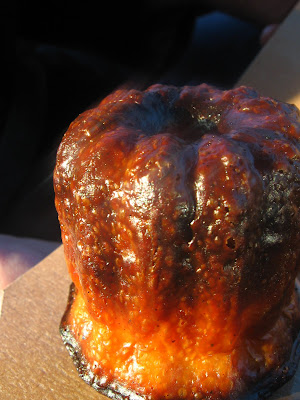
Grade AA is best for frying and poaching, but A is okay, too. Because the whites are more firm, grade AA or A eggs will have better shapes when you break them out. They won’t spread out as much in the pan when you fry them. There won’t be as much white that breaks off from the egg and forms "angel wings" in the water when you poach them. Grade B eggs would spread out a lot if they were fried and a lot of the white would float off into the water if they were poached.
Grade A is better for hard-cooking. Because the smallest air cells are in grade AA eggs, the membranes just inside the shells are very tight up against the shells. This makes it harder to peel off the shells without taking some of the whites along with the shells. Because the thinnest whites are in grade B eggs, the yolks sometimes move around inside the eggs. This can cause the yolks to be off center. Off-center yolks can make pretty funny looking hard-cooked egg slices or deviled eggs. Grade A shells will usually be easier to peel than grade AA and grade A yolks are more likely to be centered than grade B.
Any grade can be used for scrambled eggs, omelets, quiches and baked goods or any other recipe in which the shape of the egg isn’t important. Once you beat them up, all the different grades of eggs will work the same in a recipe. It doesn’t matter if their whites are thick or thin or their yolks are tall or flat. Grade B eggs don’t look as pretty as grade AA or A, but they have the same good nutrition. You won’t usually find grade B eggs in the stores. Some are used by bakeries or restaurants, but most are made into egg products.
No matter what grade, eggs need to be kept in the refrigerator whenever you’re not cooking or eating them. Refrigerating eggs keeps their quality high for a longer time. If you leave eggs out at room temperature, their quality will go down faster. When the quality goes down, the eggs’ air cells grow, their whites thin and their yolks flatten. Scientists say that a day a room temperature will cause an egg’s quality to go down as much as a whole week in the refrigerator.





















































